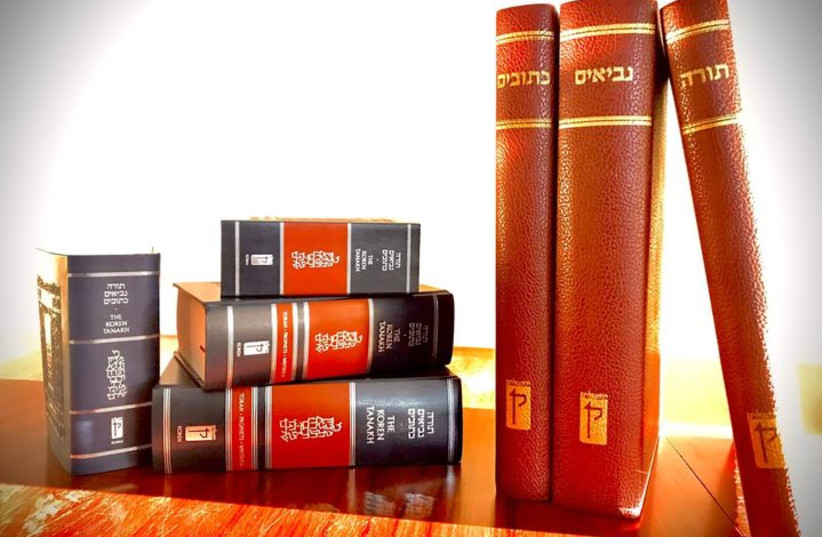There are some books that are so essential to learning something new that they become like an extension of your body. Over 20 years ago, when I was a college student attempting to learn Arabic, that book was the Hans Wehr Modern Arabic-English Dictionary.
This was right before 9/11, before many Americans were interested in studying Arabic, and there were only a handful of students in my class. Every day we would all lug the Hans Wehr Dictionary, aka “The Wehr,” around with us and plop it on the classroom table. The book was bright green, with white font and a thin red band across the bottom, and it was the only dictionary that our professor recommended that we buy.
Our Arabic professor was a brilliant Palestinian man who was not satisfied with the current Arabic language-learning paradigm and decided to write his own textbooks instead. Believing that learning one dialect is better than learning none, our teacher taught us his own mother tongue, a sweet-strong Levantine Arabic that sounded like water being poured from a jug. I’m not sure if he was aware of the history of the Hans Wehr dictionary, but at that time there was an unspoken agreement to avoid talking politics in class.
I never gave much thought to the book itself. I knew that its contents were heavily derived from Arabic literature references, rather than medieval Arabic dictionaries, and like literature, the book was both a passageway and an offering. I wasn’t even sure why I became so enraptured with Arabic in the first place, yet my love for the language was undeniable. As a Jewish girl raised in the middle of Virginia, with only a small number of Jews in my community and none in my school, I never felt like I belonged. “Otherness” became an essential part of my identity, and studying “the other” became a form of studying myself.
After I graduated, I took a job as a teacher in Egypt, eager to finally step foot in an Arabic-speaking country. But I was instantly humbled by the contrast between what I thought I knew and the reality I encountered. This was true not only about how to speak Arabic, but regarding my understanding of the Arab world. You better believe that I took the Hans Wehr dictionary with me to Egypt, but I have to admit that I found the Rough Guide Egyptian Arabic phrasebook to be a lot more helpful.
My Egyptian teaching gig was very strange—I was an instructor at a makeshift school in the Sinai Peninsula at an ecolodge founded by an Egyptian man with piercing blue eyes, who was educated in the German system in Cairo, and his German wife. Many of the guests who visited the lodge were also Germans, or Egyptians educated at German schools in Egypt. One of my most beloved coworkers, a young Egyptian man who chain-smoked Marlboros and adored poetry and Radiohead, spoke German like a native, and even the local Bedouin girls who attended our school were pretty fluent. There was a whole German scene at that place, including one Egyptian professor of history who assertively told me that 9/11 never happened, and neither did the Holocaust.
Like the dictionary, I never gave much thought to all of the upper-class, German-educated Egyptians around the lodge, but from them I learned that the Germans held a special place in Egypt that the British apparently failed to secure. The British didn’t seem to understand that chopping up the region and coercing political allegiance isn’t nearly as effective in the long run as a deliberate campaign of brainwashing and flattery. Even while the Egyptians were helping the Brits defeat the Germans in World War II, there were simpatico exchanges between Hitler and King Farouk indicating that although the British might have won the physical battle, the Germans were likely to win hearts and minds.
Read more on the Holocaust
Over months of working and traveling in the vast expanse of Egypt, I began to better understand Arabic and as a result, aspects of Egyptian culture started to unfold before me. I learned how much Egyptians loved soccer and desserts and romance. I also learned that throughout Egypt the Israelis were only referred to as “Al-Yehud”—“The Jews”—so that to Egyptians there was no distinction between an Israeli citizen, a Jew from Yemen, and one from New York. Jews were also portrayed with blatant Nazi propaganda on TV. I once had to sit through a never-ending Ramadan “musalsal”—a special holiday month soap opera that captivated the nation—where the Jewish character was literally a hook-nosed man in a black jacket carrying around a bag with a dollar symbol on it.
As a hippie, peace-loving Jewish girl who found Arabic vastly more intriguing than Hebrew and had no familial attachment to Israel, living in Egypt greatly expanded my understanding of the Middle East—but also jaded me to a devastating degree. Upon my return to the United States, I tucked the Hans Wehr dictionary away for years. The same place that captured my spirit was tainted by a constructed hatred that was still being taught.
My time studying Arabic and traveling in Egypt remained firmly in the background of my life, as I started my own family with a Brazilian husband and grew ever more distant from that youthful exploration. But a few months ago, seemingly out of nowhere I stumbled upon an article written by Khaled Diab in New Lines Magazine that hit me like one of Proust’s madeleines. Diab’s fascinating piece, “The Gifts of Jewish Arabists—and Arab Jews,” described how in the late 1930s and early 1940s, there was a German Jewish woman named Hedwig Klein who was intimately involved with compiling the initial Hans Wehr dictionary.
I was stunned: How had I never known about this? A Jewish woman helped write “The Wehr”? It was like finding out that Herman Melville worked with a ghostwriter to compose Moby Dick, and that ghostwriter was your distant great aunt.
Hedwig Klein was a Jewish German Arabist who had been captivated by the Arab world, went on to immerse herself in Arabic literature, and wrote a Ph.D. dissertation on early Islamic history. Much of what is known about Hedwig’s story comes from her colleagues at the time, as well as German historians, academics, and journalists, who have chronicled and elevated her incredible tale. From their accounts, I would guess that Hedwig, like other intellectual Jews of that time and place—and many of us since—found solace in studying Arabic and looking east.
Hedwig wasn’t born a German, but in 1914, just a few years after her birth, she moved with her family from Antwerp to Hamburg. Shortly after, her father, Hungarian oil wholesaler Abraham Wolff Klein, was drafted and killed in combat on the Eastern Front during the First World War. It wasn’t until 1927 that Hedwig, her older sister Therese, and her mother, Recha, became German citizens. By 1931, Hedwig had started her higher education, focusing on Islamic studies, Semitic studies, and English philology at the University of Hamburg.
It’s tragically ironic that as a university student Hedwig earned herself the nickname of “Shakkaka”—Arabic for “skeptic”—due to her reluctance to accept any dogmatic statement. In 1937, she completed a dissertation on the historical reception of Islam in Oman, receiving the highest distinction of summa cum laude. Her Ph.D. supervisor, Rudolf Strothmann, described her dissertation as “a worthy contribution to Islamic Studies,” and Arthur Schaade, the second academic reviewer, commented that it was “so diligent and brilliant that it made one wish some older Arabists could live up to it.”
Yet with Kristallnacht looming, none of these accomplishments would be enough to push her degree forward. Hedwig was denied her doctorate due to “stricter measures” against the Jewish population. Even her plea to the dean of the School of Philosophy, where she highlighted that her father had been killed while fighting alongside the Germans, didn’t grant her entry into the academic elite.
Like so many educated European Jews, Klein was probably incapable of imagining the extent of the horror that would ensue under Hitler. And yet, by 1939, with her degree rejected by the university, she was aware enough of the danger to try to escape Germany.
One of her colleagues, the notable geographer Carl Rathjens—whose work on Yemenite Jewry remains of great value to this day—consistently advocated for Hedwig’s fair treatment and safety. Through his academic connections with a British professor in Bombay, Rathjens managed to get Hedwig a visa to India. She boarded the boat and wrote to Rathjens that all looked promising, but after a stopover in Antwerp, on the cusp of the Second World War, that boat was ordered to return to Germany and Hedwig never made it out of Europe.
Instead, in a twisted event that served as both a lifeline and a death sentence, Arthur Schaade put her in touch with Hans Wehr. At that time, Hans Wehr, who was a German Arabist and a loyal member of the National Socialist Party, was rushing to complete a government-funded dictionary of contemporary Arabic. A central purpose of this dictionary would be to translate Adolf Hitler’s Mein Kampf into Arabic in order to gain the Arab peoples as allies. Because Hedwig possessed a coveted linguistic skill, she became a valuable asset to Wehr’s dictionary project.
Hedwig diligently reviewed contemporary works of Arabic literature for Wehr and would write definitions of Arabic terms on slips of paper and send them to the editors by mail. Wehr’s staff noted the “exceptional quality” of her submissions. It was both a punishment and a reward that Hedwig managed to avoid deportation while her sister Therese was sent on the fourth Hamburg deportation train to Riga in December 1941, where she was murdered.
But what does it mean to be kept alive so that your work can help kill your own people? Hedwig, who was by then required to live in state-sanctioned Jewish housing and wear the yellow Judenstern, must have known that by working on the dictionary she was indirectly assisting the Nazis to convince a part of the world she loved most to hate her.
With her only sister dead, Hedwig continued to work on the Hans Wehr dictionary for several more months, but as the tempo of the war increased, her talents, and the valiant attempts of her colleagues to protect her, were no match for the regime. Schaade had even written to government officials and argued that Hedwig was of essential value to the dictionary project and therefore to the Nazi party. But there came a point where an exceptional Jew was no longer an exception.
In July 1942, Hedwig received a summons to report for the fifth Hamburg transport of Jews—the first and only train that traveled from Hamburg to Auschwitz. After her departure, Arthur Schaade and Carl Rathjens furiously attempted to learn her whereabouts. In the ensuing years, Rathjens even managed to get appointed as her representative in absentia and publish 56 copies of Hedwig’s dissertation, eventually awarding her the Ph.D. Finally, in 1951, the Hamburg District Court granted Rathjens’ ongoing request for information and declared Hedwig dead.
A few months ago, when I first came across the article mentioning Hedwig, I scrambled to find my old Hans Wehr dictionary amid the cookbooks and children’s books and sci-fi series that had overtaken my bookshelves. Sure enough, I had kept it with me for all of these years, the way you hold onto an old love letter—not because you think that you will ever be able to fully rekindle that relationship, but to remind you that you have the capacity to love.
I paged through the opening—the section written in English that I had never cared about, and only saw her name written once, amid a sea of other contributors. In more recent editions of the dictionary, thanks to the efforts of German writer Stefan Buchen and other journalists and academics who brought her story to the forefront, Hedwig now has a slightly more detailed acknowledgment.
But seeing “Dr. Hedwig Klein” printed on the page was like seeing the reflection of a dead person’s face in a mirror. My breath became deep and concentrated. The audacity of the casual mention, one that I had never noticed even though I’d read that book enough times to have memorized the pages for each letter, was brutally stunning. What is crueler than keeping a Jewish woman alive so that her work can help translate Mein Kampf?
Like most academics, Hedwig likely never fully lived in the tangible land made of geographic borders and boundaries—she lived in the realm of thought and literature and interpretation. She was probably never able to firmly grasp the depravity of the people around her. That kind of cruelty can’t exist when your thoughts are marked by nuance, perspective, and skepticism. Hedwig’s body may have died in Auschwitz, but in her mind’s eye she was sailing on the Mediterranean, heading east.
Hedwig’s story is the story of Jews and women and academics and writers and thinkers of all sorts—the types of people who cannot help but see themselves in “the other.” But it is also the story of one Jewish woman whose talent was valued and exploited, and who remains largely unknown to this day. It’s not lost on me that I learned about Hedwig Klein from an Arab writer. I don’t know Khaled Diab personally, but writing a piece on Jewish contributions to Arab society is a brave thing to do, and through his courage I received the gift of Hedwig’s story. Diab opened himself up to the other, and with that offering he connected himself to Hedwig, and Hedwig to me, and me to him.
The irony of the Hans Wehr dictionary project is that dictionaries are intrinsically instruments of understanding. Using a dictionary literally allows you to be understood by “the other” by translating your thoughts into a language they can understand. And it also grants you the ability to speak for them, when their own voice has been silenced.
Perhaps Hedwig knew this, and she believed the greater mission of the project would override the immediate goal of translating a hate manifesto. With the help of the Hans Wehr dictionary, I could read the Palestinian poet Mahmud Darwish and understand not only the words, but the meaning in the melody. Because of the Hans Wehr dictionary, Khaled Diab wrote an article that made me remember what I cared about and reminded me that there are still others out there who care. And because of the Hans Wehr dictionary, I was introduced to Hedwig Klein, a kind of historic soul sister whose story I will continue to tell. May her memory, and the memory of her work, be a blessing.
Adblock test (Why?)






